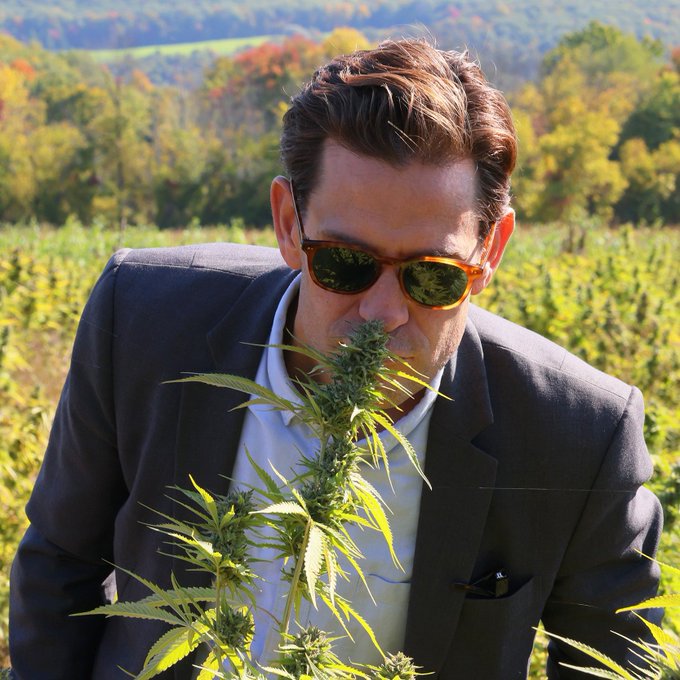Finally NYC Smells the $$ and Set Rules For Cannabis Sales, Growing Dec.2023
 |
The rules, approved by the Cannabis Control Board, outline licensing and operation procedures for different types of businesses in the industry, including dispensaries and delivery services. The state legalized marijuana for adults aged 21 and up in March 2021.
No state besides California draws as much business and consumer interest in cannabis as New York, experts say. And regulators expect applications for thousands of new businesses.
Here are five things to know:
What are these regulations?
The new rules establish requirements for the licensing of eight types of businesses: plant nurseries, cultivators, processors, cooperatives, distributors, dispensaries, delivery services and micro businesses.
Except for microbusinesses, which can grow, process, and sell their own products on a small scale, the licenses are divided between two broad categories: supply and retail. The rules forbid most individuals, companies, and other entities from owning stakes in both tiers, to prevent anyone from dominating the market.
Sign up for the New York Today Newsletter Each morning, get the latest on New York businesses, arts, sports, dining, style, and more. Get it sent to your inbox.
For instance, while investors can have an interest in multiple licenses, they cannot simultaneously have a stake in a retail operation like a dispensary and a supply-side business like a nursery, even if one of the two is in a different state.
The rules also outlined how to qualify for priority status as a social and economic equity applicant, defined by the law as individuals disproportionately impacted by anti-marijuana enforcement, minority- and women-owned businesses, distressed farmers, and service-disabled veterans.
How do the regulations affect existing cannabis businesses?
Starting in December, companies licensed to provide medical cannabis can switch to the adult-use, recreational market as retailers and wholesalers. Unlike most firms besides microbusinesses, these companies are permitted to grow, manufacture, and sell their own goods.
The companies must pay a special licensing fee of $20 million, which allows up to three adult-use dispensaries in locations where they already sell medical cannabis.
The state has more than 300 cultivators and processors who have been operating with conditional licenses. Those who are in good standing will be able to transition to a general, or nonconditional, license.
A lack of funding and court-ordered freezes on licensing has created a shortage of retail outlets, leaving farmers and manufacturers sitting on a stockpile of cannabis that will be worth about $6 billion this fall.
Legalization was more than two years ago. Why did this take so long?
The legalization act created a new cannabis agency and board, but it took six months and the former governor’s resignation for the leaders to be appointed.
After a year of establishing the agency, studying what other states had done, and setting up the first crop, regulators introduced the draft rules last November and then revised them in May. In August, the rules became eligible for adoption.
What are the next steps?
Regulators plan to issue more guidance this week on completing an application and obtaining certification for social and economic equity applicants. They then plan to begin accepting applications on Oct. 4 for 60 days.
Application and licensing fees range from $750 to $300,000, not including the special fee for medical cannabis companies. Equity applicants will be eligible for discounted fees, and have access to mentorship, training and technical assistance from a network of support centers the state plans to set up.
New York does not have a cap on the number of available licenses, though some analysts estimate the state will need close to 2,000 dispensaries alone to handle consumer demand.
Officials still have not proposed regulations governing on-site consumption, such as at smoking lounges that were also authorized in the legalization law.
What else happened?
During the public comment segment of the meeting, several licensees and legalization activists pushed for regulators to postpone the medical cannabis companies’ expansion to the recreational market. The debate over their inclusion has grown increasingly contentious since regulators trimmed two years off the original three-year timeline in a surprise decision announced in May that they did not explain.
Most of the speakers on Tuesday said allowing medical cannabis companies to transform themselves at such an early stage would let them dominate the market. They said it would also undercut the state’s efforts to address the social and economic harm caused by decades of racially biased enforcement against marijuana use.
Axel Bernabe, the chief of staff and policy director of the Office of Cannabis Management, which runs the state’s marijuana and hemp programs, announced his resignation at the meeting. Mr. Bernabe, 49, was one of the chief architects of the state’s cannabis program, having worked on legalization since 2015 when he joined former Gov. Andrew Cuomo’s administration as an assistant counsel for health. He had told several industry insiders that he had planned to resign once the adult-use regulations were in place.
The New York Times
Comments